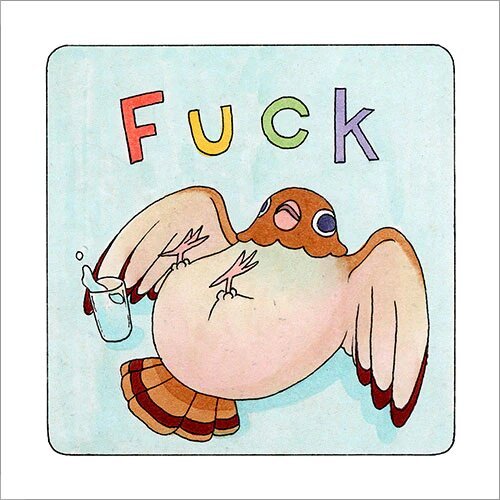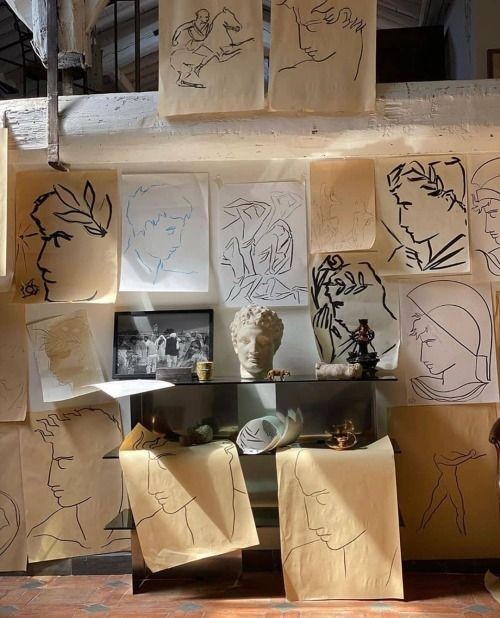So I Got This App, NHK For School, And It’s Wonderful Immersion For Japanese Learners.
So I got this app, NHK for school, and it’s wonderful immersion for Japanese learners.
It’s made for school kids. It goes from grade one to middle/high school. (I’m using grade one, personally.)
They have a variety of school subjects. My favourite are the grammar and vocab ones, specifically these guys


Although I don’t understand a lot of what’s happening (I’m a TOTAL newbie. Only three weeks of Japanese under my belt) the little practice exercises after each section is so helpful!
I’m sure it would be fun for a high level learner as well, and it’s a nice way to get some insight into what kind of stuff Japanese children are taught, ahaha.
More Posts from Lemushroomman and Others


Illustrating some literal mushroom names in anticipation of baby's first convention season (as an independent artist)
Here's 1 out of 3 - Chicken of the Woods!
Come see me at VanCAF in May if you like chickens and/or mushrooms. I'll have stickers and postcards and other art toooo
same
as an aroace, im particularly dangerous, because i wont fuck or marry. i only know how to kill.
I'm always taken aback when someone asks me if I have a boyfriend because I've convinced myself so much that people perceive me as a sexless entity roaming the mortal world in search of something incomprehensible that I'm surprised the people around me see me as like.... a cishet










What will the animals think of the human being? Felicia Chiao´s








But I protect myself, I surround myself with books, their silence does not demand anything, they exist , they are alive , they are for anyone to open, unlike us human being.
–Bo Carpelan, tr. by David McDuff , from "Urwind". Published c. 1993
Tips on how to study history by an history student
I've had this idea at the back of my mind for a while now. The thing is that as an history student I very often have people ask me for tips on how to approach the subject when they have to study for an exam. Even before university, since I was the history nerd in all my friends groups I had people either ask me for tips, or for help studying the subject, and memorizing stuff. I fully understand that it can be a tough subject, expecially if you don't have a professor that teaches with passion, and that maybe expects you to memorize a bunch of dates without much explaining. If you are used to study other subject, and you only have a couple of history classes, you might find it difficult to approach it, because the study method you normally use doesn't work. So here are a few of my tips on how to approach history, some of them are honestly quite silly, but believe me they truly work.
Aim to understand the processes and not simply memorize everything by heart
This is one of the funamental things about history. I know some teachers don't care and will just tell you to memozire a bunch of dates but that is useless. The true aim of history is to understand the processes that took place in the past, how they are linked to each other, the consequences of actions, etc. Not only you will get more out of what you are studying, but it makes the job much easier. Everything that happened in history was the consequence of a previous action, and has caused something. If you truly understand the passages it will be much easier to remember the course of events.
Understand that events in history are just like the events in the plot of a tv show or a book
I bet that everyone here could write an essay on the full plot and characters of their favourite tv show or book, without looking for any references. Even if the characters are a lot, and have terrible names, you probably remember them all, can tell them apart, and know perfectly everything that happens in the story. History is the exact same thing. The only difference is that usually you don't get a chance to get invested in the characters, and don't really differenciated them. What I have always suggested it to try to see whatever period of history you have to study as a book, or a tv show. The events are the plot of the story, and historical figures are the characters. This point is fully linked to the next two tips, that are all about characterizing historical figures to better remember about them.
Put a face to the name
Look for paintings or pictures of historical figures. being able to imagine them with an actual face is very helpful. You'll find that a lot of historical figures have characteristics that make them recognizable. I truly believe that being able to actually imagine whatever historical figure, helps a lot with remembering whta happened. I fully try to imagine the whole movie in my head when I am studying, and this passage is fundamental.
Look for further silly informations on historical figures
This sounds very stupid but bare with me for a second. This is an additional step to characterize the historical figure you have to learn about. I find that associating them not only to their face, but also to very random informations, can help so much with remembering about them. I strongly believe that the stupidest the information the better, because it will probably be easier to remember, and it's less probable something they have in common with other people. I know for a fact that it's the silly things I will remember (which is something that will come up again in another tip). Here are some examples. Giacomo Leopardi, one of the most famous poets of Italian litterature, known mainly for litteraly inventig cosmic pessimism, hated soup so much as a child, he fully wrote a poem against it. Roman Emperor Claudius is said to have tried to hyde from the praetorian guards that were looking for him to put him in charge of the empire. He thought they were looking for him to murder him, and instead he became emperor. These are just examples, but they are very simple recognizable facts that stay with you and help you to have a full image of the historical figure you are studying.
Picture the events like a movie in your head
You now have fully characterized subjects, and have to learn what they did, and what happened, when reading and then reviewing try to imagine the events as if they were a movie. Fully picture things in your head (again paintings and photographs can help a lot in this step). This association, and the fact that you are linking one event to the next in a sequence will help you memorizing facts.
The sillier the retelling is the better you will remember it
Depending on the subject you are studying this could potentially be controverse. Historical facts are very serious, and they should be percieved as such, not only because it's actual stuff that happened in the past, but also because oftentimes we still have consequences today. But part of me also believes that we should make fun of historical figures sometimes, often it helps with making them smaller, less scary if you will. I won't dwell too much on this subject since is huge, but what I mean with the purpuse of studying history is quite simple. When studying history, expecially if you have a chance to review it with someone, try to retell it in a funny or silly way to each other. I know for a fact that what I remember better about past classes, are the informations on which someone made some kind of joke or stupid comment. I have no idea what's the science about it, but whenever I have helped someone studying (whatever was the subject really) the stupidest ways I explained things the better people seemed to remember them. This is surely quite a silly tip, but believe me when I tell you it works. (Honestly I also personally find that when I get really mad about something that happened, I remember it quite well. So probably the theory is that if there's strong emotions involved you have a better chance to remember facts. And there's a lot in history to get angry at, so keep this in mind too).
On memorizing dates
This is the most dreadful part of studying history for everyone, even for us who actually chose to study the subject. As I said I refuse to see history as a long list of dates to learn by heart, but surely there's important dates to remember, and the periodization is fundamental to understand events. I have different methods. The first is one is to have a specific highlighter that I use only for dates in my notes. I usually use yellow, because it's the strongest colour I own, and it can't be mistaken for whatever other colour I use to highlight other informations. Secondly When there's a big list of dates I like to have a second set of notes, only regadring those dates. I write everything down in chronological order, so that I can see what happened during the same period of time, and write a word/ sentence to describe each fact. Since I usally study long periods of history all togheter I like to divide the list in sections depending on the century. This is very hepful to create smaller groups of dates. After having this list, since there's no other way to remember all of that, I try to repeat it until I memorize it. What I normally do is repeate it at least once a day, much better if I manage twice. Usually I do it as the first thing before reviewing the full set of notes, and then once at the end of my daily studying session. I begin by only reading it outloud (I think reading outloud helps much more so I highly reccomend doing that). When I am starting to memorize things I start switching the order of dates so I read them from the last of the list to the first one. This helps because if you read the same list again and again, you'll start to remember informations mostly because you associate them to the previous and next points. By breaking up the usual order of the list you force yourself to only link date and fact. The last thing is to randomly go through the list and picking, for this same reason. I also would reccomend copying the list multiple times, and trying to rewrite it without looking at the original.
Review with someone who has no clue what you are talking about
This is actually a general study tip that works for any subject. I know it's not possible for everyone, but I highly reccomend finding someone willing to listen to you talking for a couple of hours on what you are studying. The less they know the better, because they will ask you questions. The thing is very simple, if you explain what you are studying to someone who has very little knowledge on the subject, you will be forced to : 1. Be clear in your exposition, 2. Explain clue points, 3. Have a very clear idea of what you are talking about. It's a great exercise to test if you have truly understood the passages, and sometimes it foces you to understand things you are insicure about. It is one of the most useful tips of this list in my personal opinion. This study tecnique has helped me so much in the past, and I still use it to this day. I usually annoy my father with this, who is quite interested in history, so he always challenges me with great questions. I also found that helping someone who is struggling with the class was helpful, because not only I had to understan the passages, but I had to force myself to help someone else understand those same informations for the test. Reviewing out loud on your own is always very importan, but this addition when possible truly changes the game.
This is my very standard set of tips on how to study history. I might think of others in the future, and in that case I will make sure to add them on here, for anyone who needs them.
Untill then I hope that this can be useful for someone out there. If I was unclear on any points, feel free to tell me and ask me for clarifications. Same goes if you have other doubts or a specific problem with studying history. My inbox is always open and I am very happy to be helpful if I can. Studying is fun and all, but it's much easier if we help each other in the process.
I'm sorry it was a super long post, thank you for reading, and good luck with your tests whatever they may be on.
bon matin! c’est tôt pour moi, hmm? today I’ll be sharing some online resources for learning french ranging from vocab lists to full on courses! i hope you find these useful - the internet really is precious when learning languages! <3
⁎⁺˳✧༚ frenchtoday.com
this website threatens to put me out of business and I couldn’t be more delighted! vocab lists galore, free lessons, tips to work on your pronunciation, articles on french culture and even stories and poetry. i haven’t looked at everything available on there, but from what I’ve seen, it’s pretty useful!
⁎⁺˳✧༚ frenchpod101.com
this is a free course you can take, with options for absolute beginners and those already a little familiar with the language. it looks to be good for conversational french and is an easy, no nonsense starting point for beginners, who i know from experience are often easily overwhelmed.
⁎⁺˳✧༚ coffee break french
this is one I’m not quite as familiar with but has come to me highly recommended. it’s a podcast that covers the basics as well as providing dialogues and example role plays. give it a try and let me know how you find it!
⁎⁺˳✧༚ innerfrench (chaîne de YouTube)
this is a really interesting channel! you get to learn french through a variety of different topical discussions and he speaks slowly enough for you to get most of what he’s saying even if you’re a relative beginner, which can make you feel super smart :)
bien, c’est tout! i hope these recs are alright, and I hope we meet again soon~ a bientôt!
indeed
FUNGI HAVE CLOSER DNA TO HUMANS THAN TO PLANTS AND MUSHROOMS ARE ACTUALLY THE FRUITING BODIES OF MASSIVE SUBTERRANEAN SYSTEMS OF FUNGI THAT ARE THOUSANDS OF YEARS OLD AND MILES WIDE. THE LARGEST LIVING ORGANISM ON OUR PLANET IS A 3.5 MILE LONG 10,000 YEAR OLD FUNGI WHICH CONNECTS THE WHOLE FOREST AND HELPS EVERY PLANT COMMUNICATE WITH EACH OTHER.
THE CLOSEST THING WE HAVE TO AN ALMIGHTY IS FUNGI.

How to Unfuck Your Sleeping Space in a Few Hours (A Mentally ill Adults Advice)
The thing about living with mental illness for 15 years (only 10 of them diagnosed and medicated) is that you cycle through a few sets of coping mechanisms, each more healthy than the last.
If you, like me, are chronically depressed and anxious with su*cidal ideation it can be easy to get yourself into a place where every part of your life is fucked up. If you, unlike me, have not been dealing with this for very long, it can be hard to know where to begin in the process of unfucking it. Some parts are easier than others - sorting your sleeping space is objectively one of the more manageable.
In fact, I find it personally the most manageable, because when my bedroom is fucked, I don’t even want to wash myself - for me, this is the first step in unfucking my life. For you it might be the second or third, either way I urge you to let my decade and a half of experience help you if it can; you don’t need to struggle to figure this out alone just because I had to.
Side note, if my profanity offends you I wish you all the best, but literally do not give a flying fuck into a rolling jam donut - Peace Out ✌️
Unfucking Your Sleeping Space - Zen in the Art of Practicality
I know there’s a part of you that demands perfection, but tell it to get fucked. That little bastard voice has no idea what its like to be you and if getting a college certificate, a bachelors degree, and a masters degree has taught me anything its that this:
“Anything worth doing is worth doing badly” G. K. Chesterton
Is true. Seriously. Washing just your face is better than not washing, writing five bad lines is better than not writing, and half assing a cleaning day is better than wallowing in your own filth.
Here’s how to half ass cleaning your living space in style.
1. Take Off that Dirty Shirt and Use it as a Duster (Put a Clean One on Too, You Adorable Dumb Dumb)
Go to the bathroom, put a little water on it and use that shirt to wipe away dust, debris, and any spilled drinks, makeup, etc. This has the added benefit of making sure that you dont put that dirty ass shirt back on - don’t argue with me, I know its been on for more than a few days.
2. Throw All Clothes From the Floor into the Washing Basket
Unless you’re at crisis point you can actually wash them another day, but get them off your damn floor so that you can see the thing. Look, isn’t that better? Take a breath, drink a glass of water - I know you just want to lie down, but we’re nearly there.
3. Wipe the Crumbs Out of Your Bed and Spray Fabric Freshener
If you can’t face changing the sheets, take the duvet off, wipe out any crumbs, pull the sheets tight and straight again, and spray some fabric freshener, bodyspray, or hell even some perfume. Leave the duvet off while you do the next step.
4. Put Books in the Bookcase, Magazines in a Pile, and Rubbish in the Bin/Trash
Clear your surfaces as much as possible. Books away, magazines in a pile, throw makeup into a box or bag until you can deal with organizing it, and put all rubbish/trash in a bin or bag.
5. Open the Windows and Empty Your Bin/Trashcan
Throw those windows and curtains open and empty the bin/trashcan. Leave the bin bag with your main bin/trashcan if you need to, just get it out of your sleep space. Once you’ve done this have another glass of water, wash your face, even if its just with handsoap and water, put the duvet back on your bed and climb back into it if you have to.
This may not solve your problems, but when you wake up to a cleaner, fresher, brighter bedroom with a clean face and shirt, the day might just seem a little more manageable.
If you found this helpful, please consider supporting me via Ko-Fi at https://ko-fi.com/chaoschaoswriting - tips are absolutely not required, but very much appreciated.
-
 japaneselearningblog1 liked this · 2 months ago
japaneselearningblog1 liked this · 2 months ago -
 prashakuz liked this · 10 months ago
prashakuz liked this · 10 months ago -
 notyourvault liked this · 10 months ago
notyourvault liked this · 10 months ago -
 sonkfan005 liked this · 11 months ago
sonkfan005 liked this · 11 months ago -
 fuck-peanutbutter reblogged this · 11 months ago
fuck-peanutbutter reblogged this · 11 months ago -
 fuck-peanutbutter liked this · 11 months ago
fuck-peanutbutter liked this · 11 months ago -
 paasaatry reblogged this · 1 year ago
paasaatry reblogged this · 1 year ago -
 crippledcats liked this · 1 year ago
crippledcats liked this · 1 year ago -
 thevioletviolents liked this · 1 year ago
thevioletviolents liked this · 1 year ago -
 jyonu liked this · 1 year ago
jyonu liked this · 1 year ago -
 pokahila reblogged this · 1 year ago
pokahila reblogged this · 1 year ago -
 pokahila liked this · 1 year ago
pokahila liked this · 1 year ago -
 meticulouslymindlessart liked this · 1 year ago
meticulouslymindlessart liked this · 1 year ago -
 icedcharlatte liked this · 1 year ago
icedcharlatte liked this · 1 year ago -
 swaoina liked this · 1 year ago
swaoina liked this · 1 year ago -
 starryrituals liked this · 1 year ago
starryrituals liked this · 1 year ago -
 tengu-feathers reblogged this · 1 year ago
tengu-feathers reblogged this · 1 year ago -
 daffodilineblog reblogged this · 1 year ago
daffodilineblog reblogged this · 1 year ago -
 life-tips-for-you reblogged this · 1 year ago
life-tips-for-you reblogged this · 1 year ago -
 spiltmulk liked this · 1 year ago
spiltmulk liked this · 1 year ago -
 sword-goddess-hjordis liked this · 1 year ago
sword-goddess-hjordis liked this · 1 year ago -
 sailornaturn liked this · 1 year ago
sailornaturn liked this · 1 year ago -
 dipdeedoda liked this · 1 year ago
dipdeedoda liked this · 1 year ago -
 animaltamer reblogged this · 1 year ago
animaltamer reblogged this · 1 year ago -
 gardensalsasunchips liked this · 1 year ago
gardensalsasunchips liked this · 1 year ago -
 magic-dustt liked this · 1 year ago
magic-dustt liked this · 1 year ago -
 k4ttfisk liked this · 1 year ago
k4ttfisk liked this · 1 year ago -
 fairyinsanity liked this · 1 year ago
fairyinsanity liked this · 1 year ago -
 burning-heart-otome-fan liked this · 1 year ago
burning-heart-otome-fan liked this · 1 year ago -
 dontlookatm33 reblogged this · 1 year ago
dontlookatm33 reblogged this · 1 year ago -
 embraceyourcringe liked this · 1 year ago
embraceyourcringe liked this · 1 year ago -
 lunesonne liked this · 1 year ago
lunesonne liked this · 1 year ago -
 depcute liked this · 1 year ago
depcute liked this · 1 year ago -
 tasto777 liked this · 1 year ago
tasto777 liked this · 1 year ago -
 shyacinth liked this · 1 year ago
shyacinth liked this · 1 year ago -
 njkjklkmjlknf liked this · 1 year ago
njkjklkmjlknf liked this · 1 year ago -
 jadzianotes liked this · 1 year ago
jadzianotes liked this · 1 year ago -
 space-lattes liked this · 1 year ago
space-lattes liked this · 1 year ago -
 opossumbabe liked this · 1 year ago
opossumbabe liked this · 1 year ago -
 nonstopfandomposts liked this · 1 year ago
nonstopfandomposts liked this · 1 year ago -
 whoisjohngalt25 liked this · 1 year ago
whoisjohngalt25 liked this · 1 year ago -
 blushymoon liked this · 1 year ago
blushymoon liked this · 1 year ago -
 toojuthespri liked this · 1 year ago
toojuthespri liked this · 1 year ago -
 otlebarmehn liked this · 1 year ago
otlebarmehn liked this · 1 year ago

